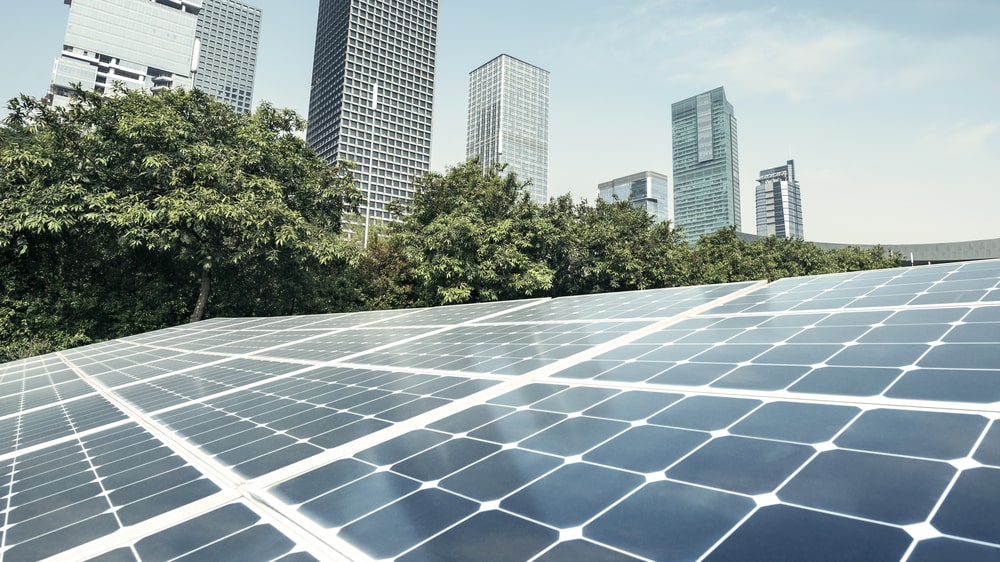News - Construction News
How construction can help build a net zero future

One two-word phrase is currently dominating headlines around the world. With Cop26 finally underway in Glasgow this week, net zero, and what it will take to get there, is the subject of intense international scrutiny. It’s a scrutiny that’s critical: the only way to avoid complete climate breakdown is by containing the rise in global temperatures and central to this is curbing greenhouse gas emissions. Refusing to add new emissions to the atmosphere – achieving ‘net zero’ emissions – through cutting and offsetting them, is fundamental to tackling the climate crisis.
This can’t be accomplished without international collaboration, legislation and government investment – that’s why Cop26 is so important, as is the UK’s recently published Net Zero Strategy. But industries and individuals also share climate responsibility. Net zero will only become a reality if we all recognise the role we have to play in achieving it.
And it’s a big role for construction. Our industry is a notoriously large contributor of greenhouse gases: before the pandemic, building operations and construction were reported to contribute 38% of total global energy-related CO2 emissions. Construction also has a huge waste problem, with construction and demolition waste in the EU accounting for 25-30% of total waste.
This not only contributes to land loss and pollution when waste is sent to landfill, it increases greenhouse gas emissions and threatens net zero goals. If materials aren’t reused or recycled, energy must be spent sourcing or creating new materials, and landfill sites themselves release methane into the atmosphere when the organic matter within them decomposes.
Taking climate action
Addressing these issues won’t be easy, and the need to start is urgent, but construction has great capacity to evolve and change. We’ve already seen how technology, such as digital 3D modelling, has transformed our practice and we know how invaluable it’s been in navigating the immense challenge of the pandemic. It’s technology that will similarly allow construction to meet its climate challenge and help create a net zero world.
For instance, digitalising the sector and moving away from paper-laden processes will go a long way in cutting waste and conserving energy. It’s a simple shift but an important one: the piece of paper you hold in your hand represents a huge amount of energy needed to produce, transport and dispose of (or recycle) it. Construction is a particularly heavy user of paper and this is holding back our sustainability efforts. But if we choose to make processes and operations digital, we can save on this unnecessary resource use, reducing energy consumption and the emissions associated with it.
Digitalising operations has other sustainability benefits too. Moving project management from the page to an online platform gives construction teams greater quality and quantity of project data and also makes it easier to analyse that data. This gives teams actionable insights that allows them to make better, more sustainable decisions and clearly identify points of inefficiency and potential waste. By working out points for improvement, teams can make sure energy and resources aren’t wasted.
A single construction management platform also improves communication, helping teams cut wasteful rework. If a supply chain is operating in silos, or working with different outdated sets of data, then errors and confusion will quickly mount up and mistakes will become built into a project. To rectify these, teams will need to redo the work and this means more energy, materials and transportation are needed to complete the project, greatly expanding its carbon footprint. However, if a project team is able to communicate better from the start, iron out issues as they arise and work with real-time data, they’ll be able to reduce this.
That’s why firms like BW: Workplace Experts have been turning to Procore as part of its sustainability strategy. The BW team is working to achieve net zero carbon by 2030 and have been using a construction management platform to streamline supply chain communication so they can cut down on carbon costly rework. The platform is also helping them track the progress of materials throughout their supply chain, so managers can make sure they aren’t wasted along the way so resource use is minimised.
Additionally, when it comes to waste, there are specific tools designed to help firms manage the impact of their materials and help create a circular economy. Solutions such as BRE’s SmartWaste software are used by teams to monitor and report on a site’s environmental impact. Visibility is the key to sustainability – by seeing where waste is going, firms can make sure they’re maximising material reuse and recycling. Such solutions can also help with energy and transport monitoring, to further reduce a site’s carbon footprint, and can be used to ensure teams are working in line with sustainability frameworks, such as BREEAM.
These are just a few ways our industry can commit to cutting emissions and tackling climate change. What’s crucial, though, is that everyone takes part. Individual action is important (every little thing adds up) but a net zero world will only be achieved if construction forms a united front and seriously, genuinely starts making a change.
We need to build a climate conscious culture, where the entire framework of our industry and our operations are sustainable, so pressured site teams and tight programme times don’t make for climate compromises.
Article supplied by: Tom Noctor, Team Lead, Strategic Product Consultants, Procore
If you would like to read more stories like this, then please click here
Related Articles
More News
- New £39Bn Social and Affordable Homes Programme
14 Jul 25
Hundreds of thousands of social and affordable homes, including 60% for social rent.
- UK Introduces New Trade Measures to Support Steel Sector
11 Jul 25
Steel producers across the UK will benefit from stronger trade measures from 1 July.
- Clean energy future to be ‘built in Britain’
10 Jul 25
The Clean Energy Industries Sector Plan comes into force to ‘build it in Britain’.






